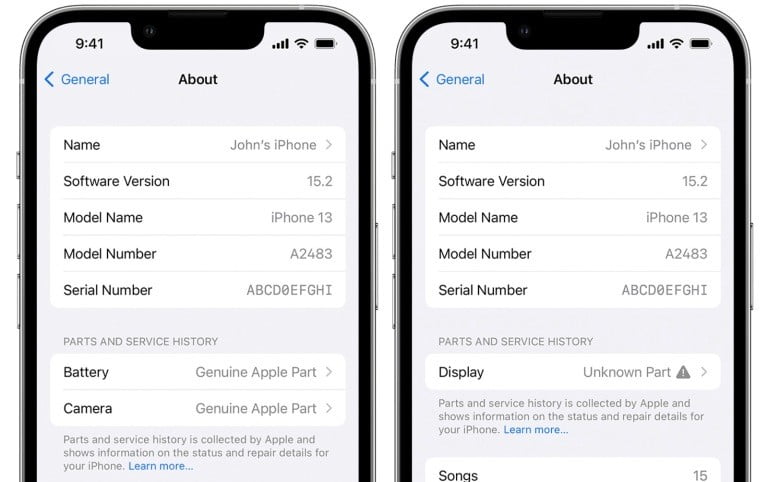Despite offering a few extra features, such as more storage on the cheapest models, the iPhone 13 models are priced the same as their predecessors. Furthermore, Apple and its carrier partners offer a variety of deals to lower those entry prices. However, they may still be too expensive for buyers looking for an iPhone without trading in a device or switching carriers. Buying a used iPhone is one obvious solution to this problem. If you’re willing to buy used, you can get much better deals. This is especially true for older iPhone models, which still have many years of life in them.
However, you do not want to be taken advantage of when purchasing a used iPhone. You’re looking for a good deal rather than throwing money away, so pay close attention to the device you’re about to buy. Apple has just released an incredible new iPhone trick in iOS 15.2 that is ideal for this scenario. And you should be aware of it, especially if you plan to buy used iPhones.
What to look for when purchasing a used iPhone
Assume you’ve discovered your ideal used iPhone. It’s the right color, has the camera you wanted, and has plenty of storage. Most importantly, the price is reasonable. You shouldn’t buy the phone until you’ve had a chance to test it out.
First and foremost, make certain that the iPhone’s age is correct. Make sure to obtain the device’s IMEI in order to determine when the previous owner purchased it. The handset should then be inspected to ensure it is free of damage. Check the battery health indicator while you’re looking at the phone to see how the battery is holding up after months or years of use.
The IMEI can also be used to ensure that the used iPhone you want to buy hasn’t been stolen or blacklisted. While you’re at it, make sure that Activation Lock isn’t turned on and that the previous owner has erased all of their data and signed out of their Apple ID.
You’ll also want to make sure that the used iPhone you’re about to purchase is compatible with your carrier. It’s pointless to get a good deal if it’s incompatible with your mobile provider.
That’s why buying a used iPhone in person rather than online is always a good idea.

iOS 15.2’s new iPhone trick
Apple recently released iOS 15.2, which includes another feature that will assist you in ensuring that the used iPhone of your dreams is a good buy. The new software includes a service history of iPhone repairs, which we’ve already explained.
Why is that such an effective method for purchasing a used iPhone? You only need to look at the About screen to see if the phone you’re about to buy has undergone any major repairs. The seller may or may not always be honest about previous damage. But you’ll want to know if what they’re saying is accurate.
The new iOS 15.2 feature is fantastic because it tells you whether the part used to repair the iPhone is genuine or not. You could still end up buying a used iPhone that the owner had fixed as long as the repairs were handled by Apple or authorized repair shops.
However, there are some caveats. Depending on the model, the iPhone parts and service history only cover certain parts. However, these are usually critical components. As an example, the battery (iPhone XR, XS, XS Max, and later); the battery and display (iPhone 11 and later); the battery display, and the camera (iPhone 12 and later).
If you buy a used iPhone in the future, make sure it has iOS 15.2 or later installed. You’ll also want to connect to the internet to look over the repair history. Make a note of Apple’s support documentation.